Traditional Wedding Vows and Ceremonies From Different Religions
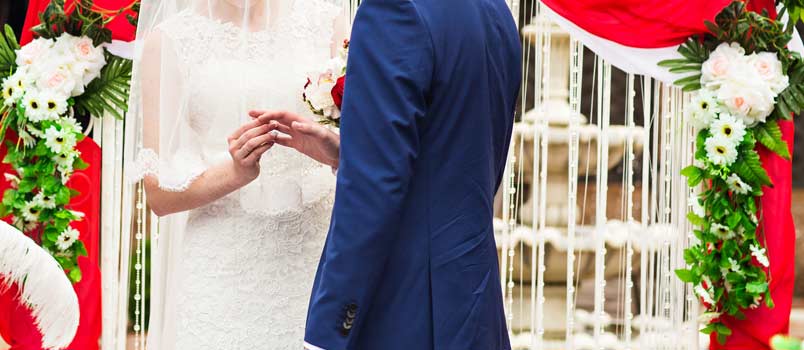
 Listen to this article
Listen to this articleTraditional wedding vows are one of the most significant aspects of a wedding. Although traditions and customs vary from religion to religion, vows are often exchanged during wedding ceremonies to unite husband and wife.
Today, some go the traditional route, a portion of couples opt to write their own and others combine tradition with more modern practices.
No matter what option is selected, traditional vows always seem to be the template and maintain a strong presence in the majority of weddings.
Most are used to hearing vows similar to, “I take you for my lawful wife/husband, to have and to hold from this day forward, for better, for worse, for richer, for poorer, in sickness and health, till death do us part” but there are several religions and the vows associated with them differ.
Words are different but the purpose is the same; commitment. So be it standard wedding vows, or basic wedding vows combining them with traditional catholic wedding vows can never go wrong.
Protestant wedding vows
Protestantism is a form of the Christian faith. Protestant traditional wedding vows depend on the type of Protestant church a couple attends but the focus across the board is very similar.
Both the bride and groom vow to commit to their partner through the good times and the bad, honor to cherish their soon-to-be spouse and promise to remain in holy matrimony until parted by death, all of which is said in front of a minister.
As stated, these vows do vary based on the type of Protestant church (Episcopal, Lutheran, Methodist) but basic vows are as follows:
“I, (YOUR NAME), take thee, (YOUR PARTNER’S NAME), to be my wedded wife/husband, to have and to hold, from this day forward, for better, for worse, for richer, for poorer, in sickness and in health, to love and to cherish, till death do us part, according to God’s holy ordinance; and thereto I pledge thee my faith [or] pledge myself to you.”
Catholic wedding vows
Catholic traditional wedding vows are similar to protestant traditional wedding vows.
They include promising to work through the good and the bad, stay committed for richer and for poorer and both parties pledge themselves to the marriage until death.
The main purpose is establishing both permanency and faithfulness in a way that displays mutual love. Here is an example:
“I, ___, take you, ___, for my lawful wife/husband, to have and to hold from this day forward, for better, for worse, for richer, for poorer, in sickness and health, until death do us part.”
Jewish vows
There is no exchange of traditional wedding vows in a Jewish wedding ceremony. Usually, the groom makes a declaration to his bride. Hebrew is a gender-based language meaning that most words indicate gender (male).
This is tradition but it isn’t uncommon for couples to exchange spoken vows. Many create a ceremony all their own by combining tradition with more modern practices.
In this case, couples choose to write their own vows and say, “I do” to the following:
“Do you, ____, take _____ to be your lawfully wedded wife/husband, to love, honor and cherish?”
Hindu vows
Like traditional Jewish weddings, Hindu wedding ceremonies do not involve exchanging traditional wedding vows but does include certain religious marriage oaths.
They take a more interactive approach with saptha padhi or the Seven Steps which represent the couple’s promises to each other. For the Seven Steps, a priest recites seven promises as the couple circles a fire.
Once completed, the man and wife are friends for eternity.
Depending on how this ritual is performed by individual families, the man may lead the woman around the fire, the couple can split the responsibility and in some families, it is a tradition for the bride and groom to take seven steps towards each other.
For those having a fusion wedding that integrates Hindu and Western practices, saptha padhi can be done after exchanging rings. It is the ritual that finalizes a union.
Muslim wedding vows
Muslim wedding ceremonies (nikah) do not involve traditional marriage vows. Instead, the Imam, the head of the Mosque, talks about the meaning of marriage along with the couple’s responsibilities to Allah and to each other.
This is read directly from the Qur’an. Once the Imam has recited this marriage contract, the couple formally consents to the marriage.
This can be done with a simple, “I accept” or the groom may pledge his faithfulness and honesty to his love while the bride promises to be faithful as well and follow through on the responsibilities of being a wife.
The entire ceremony from start to finish is simple and intimate. Nikah is very sacred. In the Muslim religion, marriage signifies not only the union of two people but of two souls.
Russian orthodox wedding vows
Many Orthodox weddings only include silent marital vows. Rather than an exchange, the bride and groom pray. This prayer encompasses their commitments to one another as husband and wife which includes being a loving and loyal spouse.
According to Russian traditions, however, vows are exchanged during the ceremony. The bride and groom each take turn reciting the following:
“I, ___, take you, ___, as my wedded wife/husband and I promise you love, honor, and respect; to be faithful to you, and not to forsake you until death do us part. So help me God, one in the Holy Trinity, and all the Saints.”
Quaker wedding vows
In the Quaker religion, the wedding is actually held during a worship meeting with no intermediary present. According to their beliefs, only God can join two people in marriage.
The couple, along with family and friends worship in silence and then when ready to recite their standard marriage vows, both the bride and groom rise as they hold hands and declare:
“In the presence of God and these our friends, I take thee to be my husband/wife, promising with Divine assistance to be unto thee a loving and faithful husband/wife so long as we both shall live.”
As you can see, every religion takes its own approach to vows. The words uttered on that momentous day differ if said at all, but all traditions are quite lovely and have a lot of history and meaning behind them.
 Tips
Tips
Write your tip or submit a video tip
All tips are reviewed before the publishing.
Share this article on
Want to have a happier, healthier marriage?
If you feel disconnected or frustrated about the state of your marriage but want to avoid separation and/or divorce, the marriage.com course meant for married couples is an excellent resource to help you overcome the most challenging aspects of being married.

 Reviewed By
Reviewed By





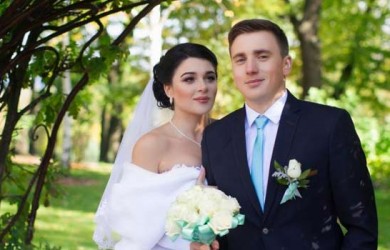

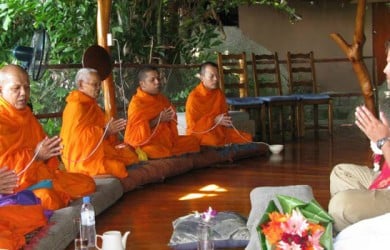





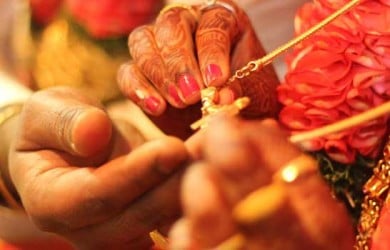


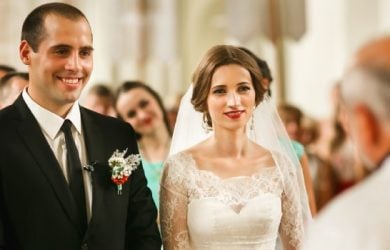







 We'd love your feedback!
We'd love your feedback! Thanks for your feedback!
Thanks for your feedback!
